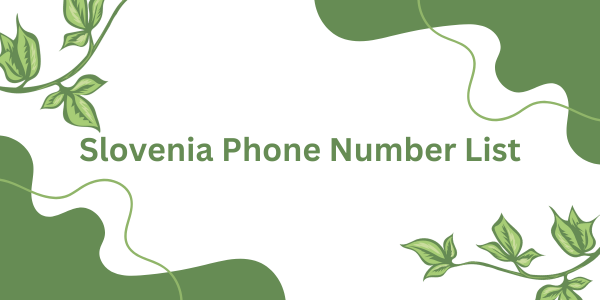|
|
Slovenia has made significant contributions to the arts and literature, shaped by its rich history, diverse cultural influences, and national identity. These contributions span centuries and highlight Slovenia's creativity, resilience, and unique cultural perspective.
In literature, Slovenia boasts a strong and diverse tradition. The national epic, "The Baptism Slovenia Phone Number List of Prince Vladimir", dates back to the 10th century and represents the earliest example of written Slovenian literature. One of the most notable figures is France Prešeren, considered Slovenia's greatest poet. His work, "The Marriage of Prešeren", is celebrated for its national and romantic themes and is a symbol of Slovenian identity. Prešeren's legacy is commemorated annually on Prešeren Day (February 8), a national cultural holiday.
Modern Slovenian literature continues to thrive with celebrated authors like Drago Jančar, Boris Pahor, and Ana Pečečnik, who explore themes of history, identity, and contemporary social issues. Slovenian writers have gained international acclaim for their thought-provoking novels and essays, many of which examine Slovenia's complex history and transition to modernity.
In visual arts, Slovenia's contributions are also noteworthy. From the medieval frescoes in churches to the works of modern and contemporary artists, the Slovenian art scene has long been dynamic. Artists like Zoran Mušič and Jože Baršičič represent modernist movements while drawing on Slovenia's cultural and historical landscape. Slovenia has a thriving art scene that includes traditional folk art, modern visual arts, and cutting-edge contemporary movements.

The country also excels in architecture, with examples ranging from medieval castles and Baroque churches to modernist and contemporary urban designs. Ljubljana's architectural landscape showcases styles such as Art Nouveau, Baroque, and Modernist movements, with architects like Jože Plečnik, whose influence is evident in Ljubljana's city planning and design.
In addition to visual and literary arts, Slovenia has contributed significantly to music and performing arts, including its rich tradition of folk music, classical music, and dance. Music festivals like the Ljubljana Festival and Slovenia's tradition of choral singing illustrate its artistic vibrancy.
Through its art, literature, and culture, Slovenia has shared its national identity with the world while engaging with universal themes of history, identity, and change. Slovenian creative traditions remain an enduring expression of the country’s story and its connection to European and global culture.
|
|